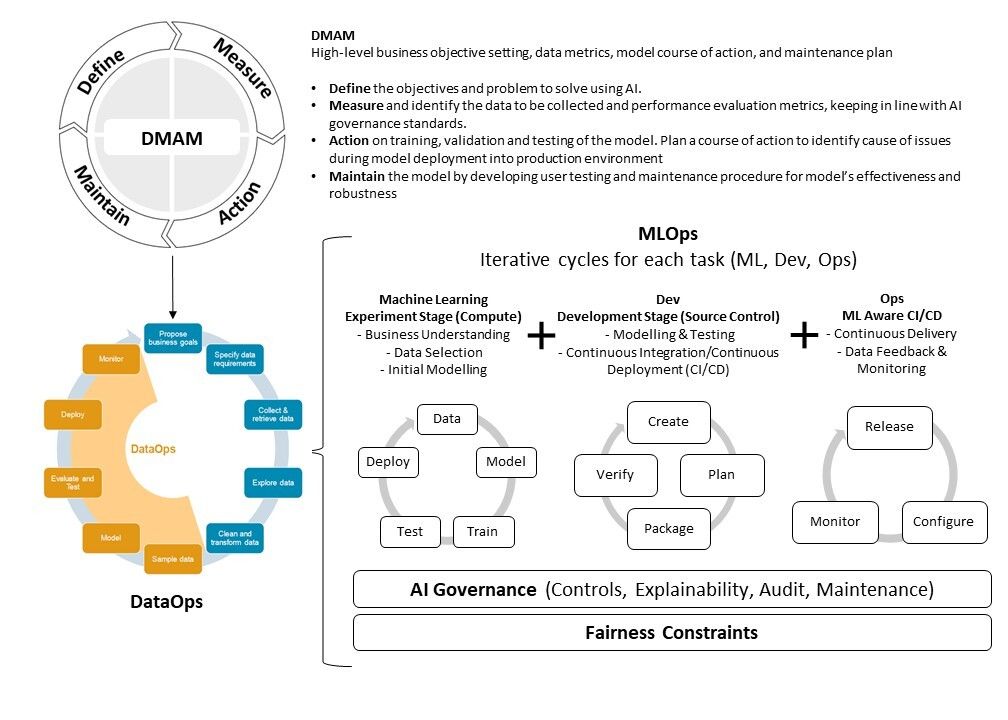The insurance industry is moving beyond small proof of concept projects toward large-scale adoption of machine learning (ML), and this calls for more industrialized processes and tools. As data analytics and ML development adoption evolves, we will examine the use cases and procedures required to run a data-driven project successfully.
Today’s artificial intelligence (AI) and ML will require a different approach in management, combining both technical assessment and team management. This approach must manage the difference between experimentation, which is usually small in scale, and production, which focuses on scalability. There is a need to look at development operations (DevOps) or data operations (DataOps) for AI/ML projects, like how DevOps manages software engineering and how DataOps manages data analytics projects, with best practices in software project management such as SDLC and Agile. This leads to the understanding of DataOps and to the evolution of today’s ML operations (MLOps).
This report is part 1 of a two-part series in MLOps. In part 1, we will look at current AI/ML services and production pipeline from big technology companies such as Alibaba, Amazon, Google, and Microsoft, in order to understand capabilities in AI/ML for production. On the business process front, we refer to the iterative approach of the agile methodology, with the inclusion of the data-driven improvement cycle define, measure, analyse, improve, and control (DMAIC). This leads to the recommendation of the define, measure, action, maintain (DMAM) data project lifecycle, a streamlined understanding of conducting an ML project.
From this understanding, we propose a business model for combining the business objectives with the technical process of MLOps. Then, we conclude with recommendations into pushing innovation to production, with an awareness of enterprise AI governance and a cultivation of an analytical development culture.







